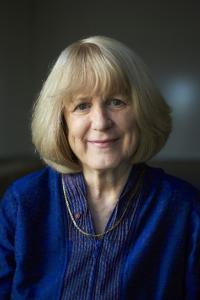Titles
- Professor of Genome Sciences
- Professor of Medical Genetics
Linked information
- mcking(at)u.washington.edu
Departments
Roles
BMHA Training Faculty, HALO Faculty
Aging factors in complex heritable conditions.
Dr. King’s group uses next generation sequencing approaches to identify genes responsible for complex human conditions. Since the 1970s, her group has exploited approaches from genetics, then molecular biology, then genomics to discover and characterize genes for inherited disease. There are four areas of her work that offer insights into aging biology: (1) In collaboration with Larry Loeb she is examining genetic variation in Werner Syndrome. (2) Her group is searching for the genetic basis of premature ovarian dysgenesis. Affected girls in these families undergo ovarian dysgenesis as children or teenagers, rather than as part of the normal human aging process of menopause. Identification of the responsible gene may offer insight into normal loss of ovarian function at menopause. (3) Late onset familial breast cancer. For 27 years, Dr. King has investigated the genetics of inherited breast cancer, in particular predisposition due to BRCA1 and BRCA2. However, there exist many families with multiple cases of breast cancer for which no mutations can be found in BRCA1 or BRCA2. In a subset of these “mystery” families, breast cancer appears distinctively later in life than for inherited breast cancer. Identifying these alleles should provide some insight into inherited carcinogenesis in the context of aging. (4) She hypothesizes that age onset presbycusis may be due to common, relatively benign, alleles in the same genes that lead to progressive hearing loss at younger age in severely affected families. Dr. King is recipient of the 2014 Lasker Award and many other honors.
